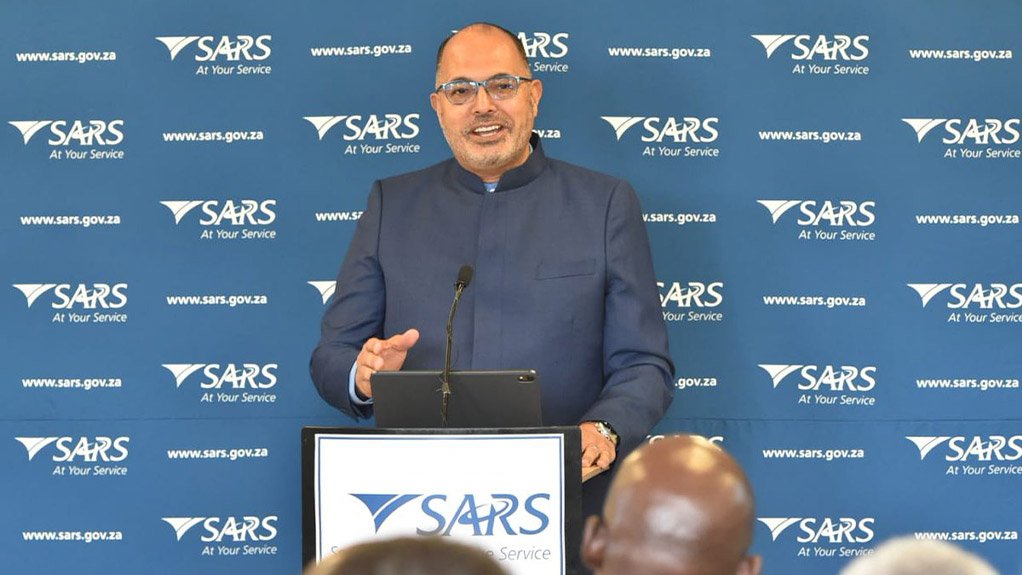The South African Revenue Service (SARS) is making significant strides in rebuilding the revenue authority as the credible, efficient and modern institution it was before the devastating effects of the State Capture years, says the country’s leading tax experts.
This is evident from the latest Tax Statistics, jointly released by National Treasury and SARS this week, showing in the 2023/24 fiscal year alone:
- Gross tax revenue reached a record R2.2-trillion, representing a 4.2% year-on-year increase.
- SARS processed tax refunds worth R413.9-billion, affirming its commitment to equitable tax administration.
- Net tax revenue amounted to R1.7-trillion, a testament to strategic enforcement and resource optimization.
André Daniels, Head of Tax Controversy & Dispute Resolution at Tax Consulting SA, says this consistent performance has been vital for funding critical social and economic development initiatives in South Africa.
Edward Kieswetter rejoined SARS as Commissioner in 2019 at a time when governance, integrity and expertise have been eroded by years of state capture. He has on several occasions alluded to a clear mandate to turn SARS around and rebuild it into a smart modern tax administration regaining the trust op South African citizens.
Daniels says since assuming office, Kieswetter has championed a culture of voluntary compliance, transparency, and efficiency at the revenue authority. These efforts have resulted in consistent growth in tax revenue, despite challenging economic conditions.
In a media release SARS reiterated its determination to make it hard and costly for taxpayers who wilfully fail to meet their obligations.
The success is evident in the SARS compliance programme which contributed R260.5-billion to the fiscus in the 2023/24 fiscal year. This is R53-billion or 25.5% more than in the preceding year.
“Such achievements underscore SARS' commitment to fair and effective enforcement, ensuring all taxpayers contribute their fair share,” says Daniels.
In the 2023/24 fiscal year, SARS also made significant inroads in its litigation strategy by successfully conducting criminal investigations dealing with Income tax, VAT and PAYE cases. “This is in line with the strategic objective that seeks to provide certainty and clarity for taxpayers ensuring proper interpretation of tax or Customs laws. In the 2023/24 fiscal year, 119 judgments were handed down of which SARS was successful in 102 cases, resulting in an 86% litigation success rate,” the Tax Statistics document states.
In the five years since 2019/20 the tax-to-GDP ratio increased from 23.7% in 2019/20 to 24.5% in 2023/24, and the cost ratio of revenue collection decreased from 0.80% to 0.71%, showing improvement in efficiencies.
Prof. Keith Engel, outgoing CEO of the South African Institute of Taxation (SAIT), said in a recent interview Kieswetter is doing an outstanding job in getting SARS back to the important institution it is.
The number of individuals registered for Income Tax increased to 27.1-million in 2023/24, up from 25.9-million in 2022/23, representing annual growth of 4.3%. reflecting an increase in public trust and participation in the tax system. The Commissioner’s commitment to fairness, transparency, and service excellence has fostered a collaborative relationship between SARS and taxpayers.
For the year ending 31 March 2024, SARS collected R1 740.9-billion and refunded R413.9-billion. This amount reflects year-on-year net revenue-collection growth of R54.2-billion (or 3.2%).
Personal Income Tax (PIT) accounts for 37.4% of total revenue, followed by VAT at 25.7% and Company Income Tax (CIT) at 18.2%.
A Vision for the Future
According to SARS the improved efficiency in tax revenue collections was facilitated by providing the necessary clarity and platforms to make it easy for taxpayers to comply. The public confidence in SARS is improving. A recent survey measured an increase from 71.8% in 2021/22 to 77.5% in 2023/24.
“An increase in the use of data to ensure integrity, drive insight and improve outcomes is evidenced in the 100% of verification cases that were selected through the automated risk assessment functionality. Extensive engagement with stakeholders across tax and customs intermediaries, as well as private and public sectors improved the tax ecosystem,” Kieswetter said.
Daniels says as Kieswetter continues to lead SARS, his emphasis on modernizing tax administration and embracing technology remains central to the organization’s vision. From leveraging data analytics to enhancing taxpayer services, SARS is well-positioned to adapt to evolving economic landscapes while ensuring the country’s fiscal health.
“The 2024 tax statistics not only demonstrate the progress achieved under Commissioner Kieswetter, but also underscore the pivotal role of SARS in building a more equitable and prosperous South Africa. His leadership serves as an inspiration, proving that effective governance can drive tangible, positive change.”
Written by Riana de Lange, a freelance journalist
EMAIL THIS ARTICLE SAVE THIS ARTICLE ARTICLE ENQUIRY
To subscribe email subscriptions@creamermedia.co.za or click here
To advertise email advertising@creamermedia.co.za or click here











